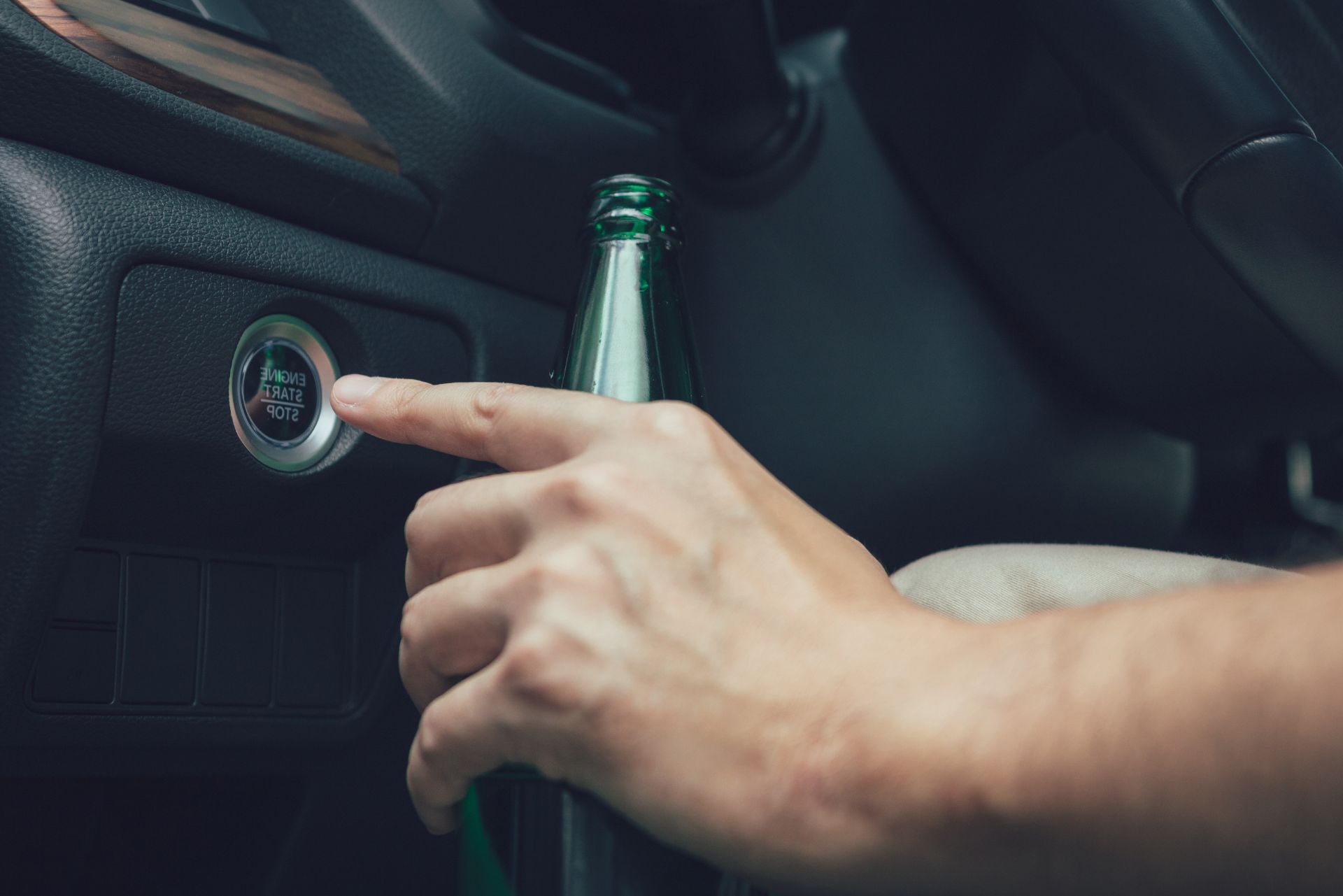
Driving under the influence (DUI) is a serious offense that can lead to significant legal and financial consequences. In Port St. Lucie, Florida, those convicted of a DUI may face increased insurance premiums or even difficulty obtaining insurance altogether. Understanding DUI insurance is crucial for anyone affected by this situation. This article will delve into what DUI insurance entails, how it impacts your premiums, and what steps to take if you find yourself in this predicament.
Understanding DUI Insurance
DUI insurance is not a specific type of insurance policy, but rather a term that refers to the higher risk associated with insuring a driver who has been convicted of driving under the influence. After a DUI conviction, drivers often find themselves categorized as high-risk, which can lead to increased premiums and limited coverage options. This classification can significantly affect not only the cost of insurance but also the availability of certain types of coverage, making it crucial for those affected to understand their options.
In Florida, all drivers are required to carry a minimum amount of liability insurance. However, those with a DUI on their record may need to obtain an SR-22 certificate, which is a form that proves you carry the required insurance coverage. This certificate is typically mandated by the state following a DUI conviction. The process of obtaining an SR-22 can be daunting, as it often requires navigating through various insurance providers to find one willing to issue this document, given the heightened risk associated with a DUI conviction.
What is an SR-22?
The SR-22 is not an insurance policy but a document that your insurance company files with the Florida Department of Highway Safety and Motor Vehicles (DHSMV). It serves as proof that you are maintaining the minimum required liability coverage. The SR-22 must be kept active for a designated period, usually three years, following a DUI conviction. During this time, it’s important to remain vigilant about your insurance status, as any lapse in coverage can result in the SR-22 being canceled, which could lead to further legal complications.
Failing to maintain the SR-22 can lead to severe penalties, including the suspension of your driving privileges. It’s essential to understand the implications of this requirement and ensure that your insurance provider files the SR-22 on your behalf. Additionally, some drivers may find themselves needing to attend mandatory alcohol education programs or counseling sessions as part of their reinstatement process, which can add to the overall burden of dealing with the aftermath of a DUI conviction.
Why Is DUI Insurance More Expensive?
Insurance companies assess risk when determining premiums. A DUI conviction indicates a higher likelihood of future claims, leading insurers to raise rates significantly. According to various studies, drivers with a DUI on their record can expect their insurance premiums to increase by 50% to 100% compared to drivers with clean records. This increase not only affects the immediate financial situation of the driver but can also have long-term implications on their overall insurance history and future coverage options.
Factors that contribute to the increased cost include the severity of the DUI offense, the driver’s history, and the insurance company’s policies. Additionally, the type of coverage chosen can further impact the overall cost of insurance following a DUI. For instance, opting for comprehensive or collision coverage can lead to even higher premiums. Drivers may also find that they are limited to fewer insurance providers willing to cover them, forcing them to accept less favorable terms. Understanding these nuances can empower drivers to make informed choices about their insurance needs and explore potential avenues for reducing their premiums over time, such as completing safe driving courses or maintaining a clean driving record post-conviction.

Finding the Right Insurance After a DUI
Securing insurance after a DUI can be challenging, but it is not impossible. Here are some steps to consider when looking for the right coverage in Port St. Lucie.
Shop Around
After a DUI conviction, it’s crucial to shop around for insurance quotes. Different insurers have varying policies regarding high-risk drivers, and some may offer more competitive rates than others. Utilize online comparison tools or work with an insurance agent who understands the nuances of DUI insurance.
When comparing quotes, make sure to look at the coverage options, deductibles, and any additional fees that may apply. It’s essential to find a balance between affordability and adequate coverage to protect yourself in the event of an accident. Remember that the cheapest option may not always provide the best protection, so take the time to analyze what each policy offers in terms of liability limits and additional coverages, such as uninsured motorist protection or personal injury protection.
Consider High-Risk Insurance Providers
Some insurance companies specialize in providing coverage for high-risk drivers. These insurers may offer more flexible terms and lower premiums than traditional providers. While the rates may still be higher than average, they can be a viable option for those struggling to find coverage after a DUI.
Researching high-risk insurance providers in Florida can lead to finding a policy that meets your needs without breaking the bank. Be sure to read reviews and check the financial stability of these companies before committing. Additionally, inquire about any potential discounts or programs they may offer for drivers who show improvement over time, such as maintaining a clean record or completing rehabilitation programs. This proactive approach can not only save you money but also help rebuild your driving reputation.
Maintain a Clean Driving Record
Once you have secured insurance, it’s vital to maintain a clean driving record. Avoiding further infractions will help demonstrate to insurers that you are a responsible driver. Over time, this can lead to lower premiums and more favorable insurance options.
Additionally, consider taking a defensive driving course. Many insurance companies offer discounts for completing such courses, which can help offset the increased costs associated with a DUI. Engaging in community service or attending alcohol education programs can also reflect positively on your commitment to responsible behavior. These actions not only enhance your profile as a driver but can also provide you with valuable skills that contribute to safer driving habits in the long run.
The Impact of a DUI on Your Insurance Premiums
The financial repercussions of a DUI can be long-lasting, particularly concerning insurance premiums. Understanding how a DUI affects your rates can help you plan for the future.
Initial Premium Increases
Upon receiving a DUI conviction, drivers can expect an immediate increase in their insurance premiums. This increase can last for several years, depending on the insurance company and the severity of the offense. It’s not uncommon for premiums to remain elevated for three to five years following a DUI conviction.
During this time, drivers may also face challenges when switching insurance providers, as many companies will factor in the DUI when determining rates. It’s essential to be proactive in seeking out the best options available.
Long-Term Financial Consequences
The long-term financial consequences of a DUI extend beyond just increased insurance premiums. Drivers may also face fines, legal fees, and potential job loss, particularly if their employment requires a clean driving record. All of these factors can add up, creating a significant financial burden.
Additionally, a DUI conviction can impact credit scores, making it more challenging to secure loans or mortgages in the future. It’s crucial to consider these long-term implications when navigating the aftermath of a DUI.
Moreover, the emotional toll of a DUI can be profound. The stigma associated with a DUI conviction can lead to feelings of shame and isolation, affecting personal relationships and social interactions. Individuals may find themselves facing judgment from peers or even family members, which can exacerbate feelings of regret and anxiety. This emotional strain can further complicate the financial challenges, as stress often leads to impulsive financial decisions that can worsen one’s situation.
Furthermore, many states mandate participation in alcohol education or rehabilitation programs following a DUI conviction. While these programs can provide valuable insights and support, they often come with their own costs, adding to the financial burden. The time commitment required for these programs can also interfere with work schedules, potentially leading to lost income. Understanding the full scope of these consequences is essential for anyone facing a DUI, as it highlights the importance of responsible decision-making and the potential benefits of seeking legal counsel to navigate the complexities of the situation.
Legal Consequences of a DUI in Florida
In addition to the financial implications, a DUI conviction carries legal consequences that can affect various aspects of life. Understanding these consequences is essential for anyone facing a DUI charge.
Criminal Penalties
In Florida, DUI convictions can result in criminal penalties, including fines, community service, probation, and even jail time. The severity of the penalties often depends on whether it is a first offense or if there are aggravating factors, such as a high blood alcohol concentration (BAC) or causing injury or death.
A first-time DUI offense may result in fines ranging from $500 to $1,000, while subsequent offenses can lead to much higher fines and longer jail sentences. It’s essential to seek legal counsel to navigate these complexities effectively. Additionally, the court may impose mandatory minimum sentences, which can include a minimum of 10 days in jail for a second DUI offense, and this can escalate further with each subsequent conviction. The impact of these penalties extends beyond the courtroom, as they can also affect employment opportunities, especially in fields that require driving or have strict background checks.
License Suspension
Following a DUI conviction, drivers typically face a suspension of their driver’s license. In Florida, a first offense can lead to a suspension of six months to one year, while subsequent offenses may result in longer suspensions. To regain driving privileges, individuals may need to fulfill specific requirements, such as completing a DUI education program.
Understanding the process for reinstating a driver’s license is crucial for those affected by a DUI. Failure to comply with the requirements can lead to further complications and extended periods without a valid license. Furthermore, individuals may also be required to install an ignition interlock device (IID) in their vehicles, which prevents the car from starting if alcohol is detected on the driver’s breath. This can be both a financial burden and a source of embarrassment, as it serves as a constant reminder of the DUI conviction. The IID requirement can last for several months to years, depending on the circumstances of the offense, making it essential for individuals to plan accordingly to manage their transportation needs during this time.

Steps to Take After a DUI Conviction
Receiving a DUI conviction can be overwhelming, but taking the right steps can help mitigate the impact on your life and finances. Here are some essential actions to consider.
Consult with an Attorney
One of the first steps after a DUI conviction should be to consult with an experienced attorney. A legal expert can help navigate the complexities of the legal system, explore options for reducing penalties, and provide guidance on the best course of action moving forward.
Having legal representation can also make a significant difference in the outcome of any appeals or additional hearings related to the DUI charge. An attorney can also assist in understanding the nuances of local laws, which can vary significantly from one jurisdiction to another. They may be able to identify potential defenses or procedural errors that could lead to a more favorable outcome or even the dismissal of charges.
Complete Required Programs
Many DUI convictions come with mandatory requirements, such as completing a DUI education program or substance abuse treatment. Fulfilling these requirements is crucial for regaining driving privileges and demonstrating a commitment to responsible behavior.
Additionally, completing these programs can positively impact insurance premiums over time, as insurers may view participation in such programs favorably. Engaging in these educational courses not only fulfills legal obligations but can also provide valuable insights into the dangers of impaired driving. Many programs include discussions on the psychological and social aspects of alcohol and drug use, helping individuals to reflect on their choices and make informed decisions in the future. This proactive approach can also serve as a testament to one’s dedication to personal growth and responsibility.
Stay Informed About Your Rights
Understanding your rights following a DUI conviction is essential. This includes knowing your rights during the legal process, as well as your rights regarding insurance and driving privileges. Staying informed can empower individuals to make better decisions and advocate for themselves effectively.
Moreover, it’s important to be aware of the potential for expungement or record sealing in some cases. Depending on the jurisdiction and the specifics of the conviction, individuals may have the opportunity to clear their record after a certain period, which can significantly improve employment prospects and personal reputation. Keeping abreast of changes in legislation regarding DUI laws can also be beneficial, as new laws may provide additional avenues for relief or support that were not previously available. Engaging with local advocacy groups or online forums can further enhance understanding and provide community support during this challenging time.
Conclusion
In summary, navigating DUI insurance in Port St. Lucie, FL, requires a comprehensive understanding of the implications of a DUI conviction. From increased premiums and the necessity of an SR-22 to the legal consequences and steps to take afterward, being informed is crucial for moving forward.
By shopping around for insurance, maintaining a clean driving record, and fulfilling legal requirements, individuals can work toward regaining their driving privileges and reducing the financial burden associated with a DUI. Remember, while a DUI conviction can have lasting effects, taking proactive steps can lead to a more favorable outcome in the long run.
Contact Us


